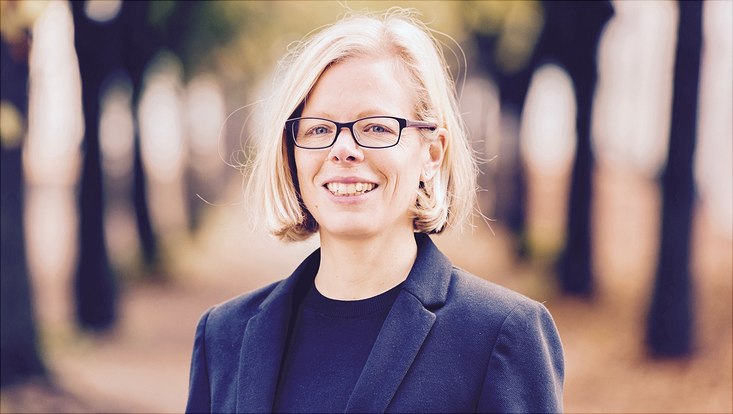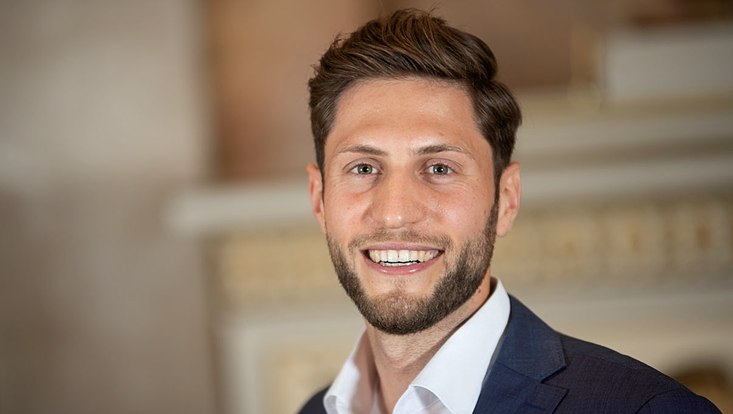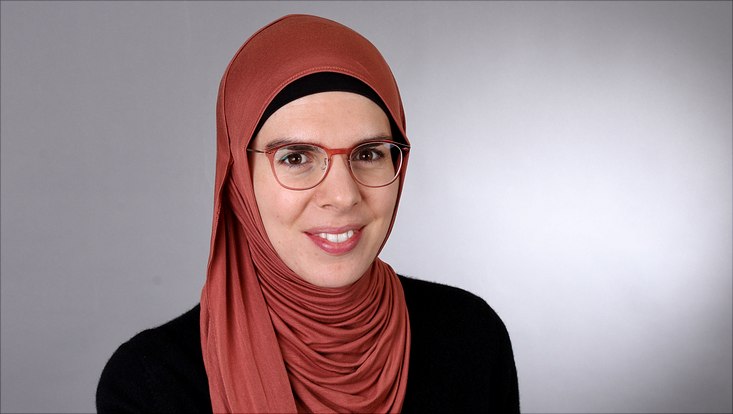Welcome aboard!Improving and Expanding Teachers’ Reflective SkillsProf. Dr. Hilke Pallesen strengthens the Faculty of Education.
2 September 2024, by Pallesen/Red.

Photo: Jessen Mordhorst
Every year, the University of Hamburg welcomes numerous new researchers. This series introduces them and their areas of research. This time: Educational scientist Prof. Dr. Hilke Pallesen.
Prof. Dr. Hilke Pallesen came to Hamburg from Martin Luther University Wittenberg-Halle in Winter Semester 2024/25 to take up an appointment as professor of school education with a focus on the professionalism and professional development of teachers in the Faculty of Education.
How would you describe your field of research in a few sentences?
I deal with being and becoming a teacher from a structural-praxeological perspective of professional research. This perspective focuses on the question of how institutional structures like the specific conditions and participation and recognition behaviors at an individual school, or the requirements of the subject and its teaching, are connected with internalized structures such as habitual patterns of action, thinking, and perception of the school actors. In particular, the level of implicit, routine, and usually unconscious knowledge, i.e., the concept of teacher habitus that I focus on in my research can be shown as an empirically relevant guide for teacher action and the development of professionalism.
How do you explain your research in a way that is easy to understand?
As my denomination already describes well, I am driven by the question of how teachers become professional in the first place. This links to questions about what constitutes professional pedagogical action, how this can be captured, but also how teachers find their way when confronted with the typical problems of their profession.
The habits and attitudes that people develop over the course of their lives as a result of their experiences at school and in the classroom, as well as through dealing with the demands of their studies, individual subjects, and the school itself are particularly important. In particular, I would like to explore the process of finding one’s way into the teaching profession, and how uncertainties, insecurities, and indeterminacies are dealt with in professional action.
What current social issues or challenges would you like to contribute your scientific expertise to?
In an increasingly complex and diversified world, (prospective) teachers face a variety of challenges, whether dealing with heterogeneity in the classroom, digitalization in the classroom, or supporting students in crisis situations.
My research on professionalism and professional development starts here and I would like to contribute my expertise to the professionalization of the teaching profession in times of social change. My research aims to prepare teachers for these challenges. This includes not only imparting specialist knowledge to them, but also strengthening and developing their reflective skills.
What can students look forward to or be excited about?
I find the question difficult to answer. It has however given me food for thought. Perhaps I'll start by saying that I’m particularly keen to get to know the students’ perspectives and to learn from them. Students can therefore look forward to being able to contribute their own views and experiences to my seminars.
I am interested in a culture of discussion in which exchange plays an important role, in which we look behind the scenes of becoming a teacher, and sometimes even beyond that, together. I want to go into depth professionally and at the same time convey that you can face the adversities and uncertainties of school, teaching, and teacher action with humor.
What do you want to achieve at or from the University of Hamburg, for example in terms of teaching, knowledge exchange, or sustainability?
At the University of Hamburg, I would like to contribute to the further development of research-led and reflective teacher education. My aim is to prepare students for the complex demands of the teaching profession in the best possible way through teaching and research.
In terms of sustainability and transfer, I see my role as not only sharing research results within the academic community, but also bringing them into practice. This means strengthening cooperation with schools and working together on sustainable concepts. Through my work, I would like to contribute to the University of Hamburg taking an active role in shaping sustainable and fair education.
I am also keen to promote a culture of lifelong learning and reflection. Both students and teachers should be encouraged to continuously question and further develop their pedagogical practice. In this way, I would like to create an environment at the University of Hamburg that result in a dynamic diablogue between teaching, research, and practice.
Which universities or institutions do you work with?
I find collaboration with colleagues from other universities and the associated networked knowledge building very beneficial for my own research. Questions of professionalism and the development of professionalism can also be focused and examined very well across borders in other education systems.
Most recently, I was able to participate as a ‘critical friend’ in a project financed by the Swiss National Science Foundation featuring a large longitudinal study run by Prof. Dr. Tobias Leonhard to examine how students find their way in the teaching profession.
What are you especially looking forward to in Hamburg?
I learned to row in Hamburg 20 years ago as part of my sports studies and would love to find out if I can still do it! Otherwise, of course, I'm looking forward to the odd evening in Strand Pauli.


